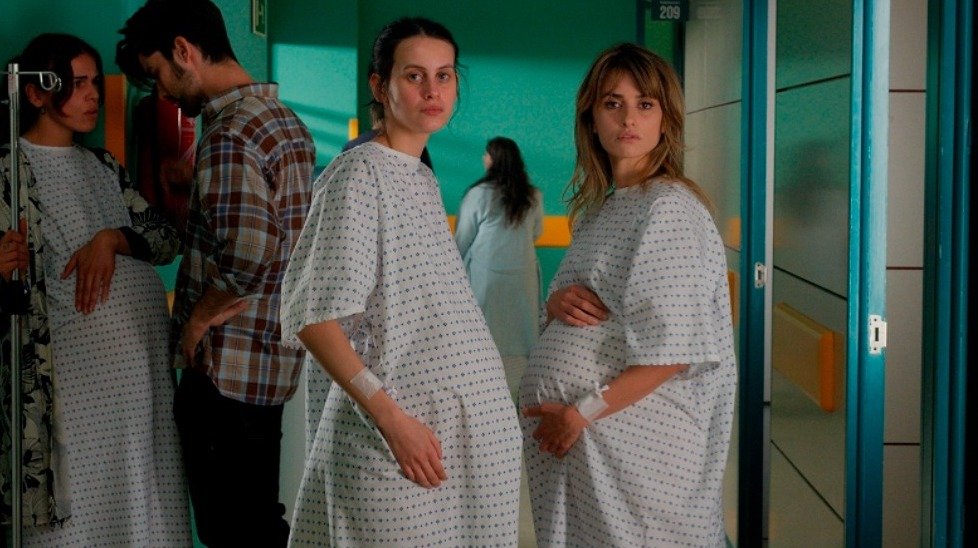Parallel Mothers review
Almodovar’s latest release loses impact at the hands of its unbalanced structure and superficial baby-swap conceit, while serving as a reminder of the continued prevalence of the image of all women as ‘perfect mothers.’
In line with much of his back-catalogue, Parallel Mothers is a brilliantly shot, exuberant film. It is visually stunning, with apartments filled with striking primary colours - the film bursts off the screen. However beneath its pastel coloured facade there is little to find.
The film follows Penelope Cruz as Janis, a photographer and soon-to-be single mum who nurtures a passion to return to the unmarked mass graves of her family members murdered by Francoists during the civil war. Soon Janis meets teenager Ana (Milena Smit) in the maternity ward and through theatrical and almost farcical dramatisation, we see them groan and puff synchronously in a birthing montage. When Janis takes a biological test after concerns about her relation to her baby, the women become linked in ways they hadn’t imagined. The trouble is that Janis knows the truth and Ana does not, and it is this deception and its repercussions that shape the film’s darker climax.
Yet here the problem arises. The conceit sets out an interconnectivity between generations and eras; Janis and Ana’s exploration of what it is to be a mother working in tandem with the prevalence of Spain’s tragic history. But the two stories - past and present - are not balanced nor intertwined.
The film spends far longer on the two mothers, swerving oddly at the end to a return to Janis’ family history. A shame, as perhaps a film focusing only on Franco’s rule would have been suffice enough to create impact. Indeed, the film’s final act, that returning to these darker themes, is breathtaking, with the final shot one of the most ingenious and poignant I have seen this year. Its impact left me wondering whether the contrivance of the other plot was needed.
Furthermore, the ‘parallel mother’ characters made for uncomfortable viewing. Though I normally relish the farcical world of Almodovar’s larger-than-life characters, the visual perfection of these mothers and the absence of emotional difficulties caused by dealing with their babies felt inauthentic and strewn with trappings of the male gaze.
Having recently watched Maggie Gyllenhall’s The Lost Daughter, this was a stark reminder of the continued prevalence of the image of women as ‘perfect mothers,’ and fear from directors to include the taboos, yet the realities, of women being “unnatural” and imperfect mothers (as stated in Gyllengall’s film). This, coupled with the artifice of the story, left me feeling more alienated than entranced, finding it impossible to emotionally connect to these unrealistic characters.
But it does not fail to impress in terms of visuals. Where I was disappointed by story, there was much to enjoy in the lemon yellows, ceridian blues and cherry-reds of the sets.
Overall, though, the structural failures and inauthentic depiction of motherhood leaving only contrivance and alienation.
In cinemas 28 January 2022. Cert. 15
Read more on Almodovar here
This film was featured in my ‘Top 10 most exciting releases of the coming winter months’- read here
